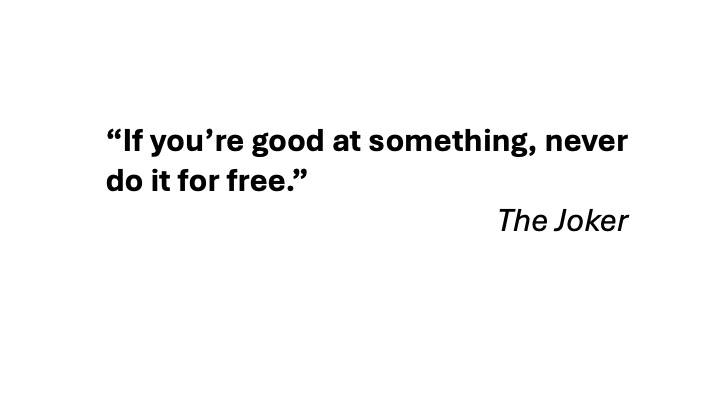The Efficiency Trap
How Software Engineers Can Avoid Being Punished for Their Productivity
The Problem: More Work, Same Rewards
If you’re an efficient and high-performing software engineer, you’ve probably experienced this: You complete tasks faster than your peers, solve complex issues with minimal supervision, and take ownership where others hesitate. Instead of being rewarded proportionally, you get assigned even more work and responsibilities—without a matching increase in compensation, recognition, or career growth.
This is the efficiency trap—where competence is met with additional workload instead of proportional rewards. It’s a common issue in software engineering, where impact isn’t always measured fairly, and companies often optimize for short-term output rather than long-term employee satisfaction.
So how do you handle this without burning out or feeling undervalued?
1. Set Boundaries Early
Many engineers fall into the trap of always saying yes. If you consistently overdeliver without pushback, it sets a precedent. Instead, practice setting clear limits:
• Push back on unscoped or vague work. If a new responsibility is being assigned to you, clarify the scope and expected outcomes.
• Use data to justify limits. Track the time spent on projects and demonstrate workload capacity.
• Normalize saying no (or not yet). A polite but firm “I’d love to help, but my current priorities don’t allow me to take this on” goes a long way.
2. Make Your Impact Visible
Just doing great work isn’t enough—you need to communicate your impact effectively. Many software engineers assume their contributions will be recognized naturally, but that’s rarely the case.
• Track and quantify your impact. If your efficiency saves the team hours, reduces costs, or improves performance, document it.
• Regularly share progress. Use sprint retrospectives, 1:1s, or team updates to highlight your contributions.
• Tie your work to business value. Leadership often cares more about revenue, customer satisfaction, or efficiency gains—frame your work in those terms.
3. Negotiate Proactively
If your workload keeps increasing, your compensation and title should, too. Don’t wait for a raise to be handed to you—advocate for it.
• Benchmark your role and responsibilities. Compare your work to job descriptions at other companies to see if you’re already operating at the next level.
• Request career growth conversations. Regularly check in with your manager about progression opportunities.
• Tie promotions to outcomes. If you’ve taken on more work, frame your request in terms of business impact: “I’ve increased deployment efficiency by X%, mentored junior engineers, and led feature development—I’d like to discuss a promotion.”
4. Focus on Force-Multiplying
If you’re constantly picking up extra tasks, delegate and automate wherever possible:
• Train others. If you’re the go-to person for a specific task, document your knowledge and mentor others to share the load.
• Leverage automation. If you’re doing repetitive work, consider scripting solutions or proposing process improvements.
• Redirect work to where it belongs. Not every issue needs to be on your plate—sometimes, it’s best routed elsewhere.
5. Know When to Walk Away
Sometimes, despite your best efforts, your company may continue to exploit your efficiency without fairly compensating you. If you’ve advocated for yourself and seen no change, consider looking elsewhere.
• Strong performers are always in demand. You’ll likely find a company that values efficiency without overloading you.
• Look for companies that prioritize sustainable work. Research team culture and work-life balance before making a move.
• Your career is a marathon, not a sprint. If your current environment is burning you out, a better opportunity could be a game-changer.
Final Thoughts
Being a high performer shouldn’t mean doing double the work for the same rewards. By setting boundaries, making your contributions visible, negotiating effectively, and offloading unnecessary tasks, you can ensure your efficiency leads to career growth rather than burnout.
Your productivity is an asset—make sure it’s working for you, not against you.


